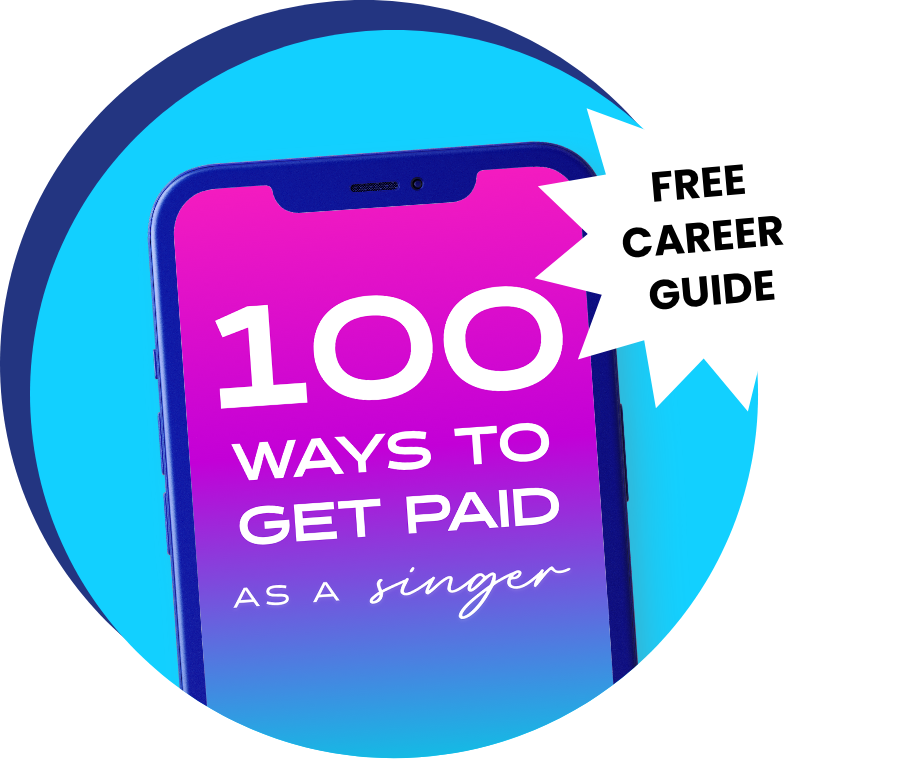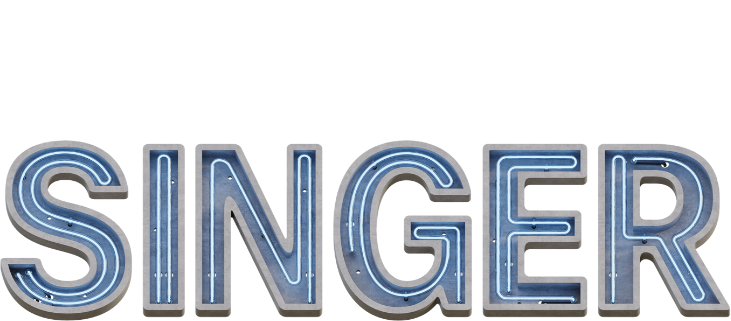Throughout my career, I’ve enjoyed singing more genres of music that I can count. I’m mostly a pop singer, but I just love all kinds of styles and flavors. I’ll throw down some AC/DC one day and belt out Whitney the next. My love for classical singing began in my first year of high school choir through college. I almost earned my degree in it! That’s another story for another day. Different styles mean different things to me at any given time. There are some that I just find fascinating and musically satisfying. Others fulfill more of the mood or emotional need for me. I can say for sure, though, that is having been trained classically early on benefitted me greatly as I became a multi-genre vocalist.
FREEBIE! 👉 Pandemic-Proof your singing career by starting with your own home vocal recording studio. Don’t know what you’re doing? Here’s a free video training to get you started.
[button style=”e.g. green, yellow, purple, blue, red, black, grey” float=”right or left” margin=”e.g. 10, 15, 20″ size=”large” link=”https://mailchi.mp/62d182d19f71/singingstudio” target=””]FREE VIDEO![/button] 👈
In Episode 15 of the Pandemic-Proof Singer Series, Rosy Dawn and I chat about switching between classical and contemporary vocal styles. The adults around town know her from the Rosy Dawn Band, and the kids know her as the executive artistic director and founder of Center Stage Children’s Theater and Thornton’s Youth Performance Ensemble. She’s performed with the San Diego Lyric Opera and has been a recurring Chorus member with the San Diego Opera chorus since 2004. All the while, she’s been a working singer on the gig scene doing everything from pop, rock, folk, jazz, and more. We discussed how we’d transferred the concepts of classical vocal singing into our pop singing and other contemporary styles of music.
Eventually, I got to a point with teachers and with myself where I realized that the classical helps me to be a better vocalist in the band. – Rosy Dawn
10 Great Lessons a Pop Singer Can Learn from Classical Singer
-
Projecting
The classically trained singer rarely uses a microphone because of their work in placement and technique. Naturally, this lends itself to projecting masterfully well.
-
Vibrato
Vibrato is that oscillating or vibrating sound often described as a quivering or fluttering quality. From style to style, the warranted use of vibrato changes dramatically. You will indeed learn to command control over vibrato in classical training.
-
Resonance
In classical singing, you aim to create as much space as possible in all of the available resonant space. In contemporary styles, singers often sing with the mouth or speaking resonance, because the music tends to be conversational. Either way, the earlier training gives you acute awareness of your use of these spaces.
-
Anatomy
As a singer, your body is your instrument. You learn the different parts of the anatomy that help create sound, and how to do it safely and healthily in classical training. You develop a deep understanding of how your instrument works.
-
Posture
In classical singing, posture is key to creating a healthy and beautiful sound. Pop singers would benefit from learning how to harness this body stance for more significant support and ease with their vocals.
-
Breath Support
One of the most reliable skills that stem from classical training is proper breath support is. A great deal of focus is dedicated to diaphragm release and lung expansion.
-
Vocal Exercises
Through classical training, a singer develops a large toolbox full of vocal warm-ups and exercises that will strengthen their voice throughout their career.
-
Vowel Shape
Classical vocalists learn how to manipulate their lips, tongue, and mouth to create the desired sound accurately. In any genre, this can make or break the pitches and tone in a song. This is also supported by the foreign Language study involved in this training. Once a singer has experience singing classical Italian, German, and Spanish songs, they have an easier time singing and articulating in English while also connecting to the lyrics.
-
Music Theory
Classical training includes a devoted study of music theory. You’ll also be trained to analyze the vocal scale, then how to apply it to a new piece of music at first sight. Music theory is a skill that will instantly raise the status of one vocalist over another. It’s truly an essential part of any musician’s training. A pop singer can rely on themselves to create and interpret the music.
-
Vocal Strength and Range
A classical singer’s voice develops and strengthens, which allows for a healthier belt and mixed voice. It’s one of THE main reasons Broadway performers and pop singers alike begin their training in classical music. All of these skills enable a singer to reach their full vocal potential. In classical singing, the goal is to sing with seamless transitions between the registers. There’s less of an emphasis on this singularity in contemporary vocals. But, developing a widened range means you can sing a wider variety of music. It also reduces fatigue or tension that can be caused by a faulty technique.
These are truths that every singer, regardless of the genre, would be better to come to terms with. One of the keys to becoming a successful singer is becoming well-rounded. I’m not by any means suggesting that every singer should be a classical vocalist or drop their style and change. What I do recommend, though, is exploring all kinds of genres. There’s something to be learned an gained in every style. When you become serious in your training, and choose an instructor, ask them about their educational background. They should be able to tell you where the basis of their vocal knowledge comes from.
Your Next Step
We’re in a new day and age that will challenge us to be innovative and use all of our experience and know-how to be successful at what we do. If you know you’ve got what it takes but don’t know where to start, I’d love to help. In my vocal coaching practice, we work on both your strategy and your craft. Contact me here to work with me.
My most immediate piece of advice is to begin building your at-home vocal recording studio. If you want to work-from-home as a singer, record your songs, make YouTube, Instagram or TikTok videos, you’ll need to learn to do this.
 Start simple with what you have and build from there. If you need help, I’ve created a free video for you that’ll make this super simple to get started.
Start simple with what you have and build from there. If you need help, I’ve created a free video for you that’ll make this super simple to get started.
Your opportunity is coming. Be ready for it. Pandemic-proof your singing career.
For more Pandemic-Proof Singer Series, click here.
 [divider style=”solid” padding_top=”5″ padding_bottom=”5″][/divider]
[divider style=”solid” padding_top=”5″ padding_bottom=”5″][/divider]
Hi! I’m Danielle Tucker – singer, vocal coach, and lead vocalist of The Mighty Untouchables band.
Throughout my 20-year career, I’ve equally enjoyed singing country, rock, pop, gospel, and jazz. Today, I’m a professional singer/songwriter available for solo performances, studio recording, and lead vocalist of San Diego-based band The Mighty Untouchables. I also offer vocal coaching to both solo artists and groups through my own studio. I’ve crafted a rewarding vocal career, and it’s my great pleasure to bring music to others through private bookings, performing with my band, or helping others to grow more confident in their own vocal gifts. Thanks for visiting my site I’m honored that you’d like to get to know me!

|
|||||||||
|
|||||||||
|
|||||||||
About the author
Danielle Tucker is a professional singer/songwriter with 25 years of experience singing country, rock, pop, gospel, & jazz. She has performed with celebrated artists like Chris Young, Jamey Johnson, Josh Gracin, Jamie O’Neil, Phil Vassar, James Otto, & Juice Newton. She currently works as a solo performer, studio artist, vocal coach/career advisor, and lead vocalist for the award-winning, San Diego-based band The Mighty Untouchables.

Want 100 ways to get paid as a singer?
Sign up below to receive the free vocal career guide (and other noteworthy content):
